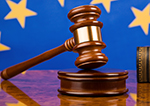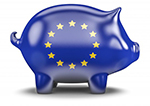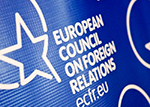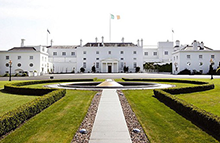THE COUNCIL OF THE EU
 There is a lot of work that goes into ensuring that member countries of the EU have the necessary regulations to help them achieve their political, social and economic goals. One of the bodies tasked with this responsibility is the council of the EU which has been in operation for six decades and where all member nations get to have a say. That said, we can get down to what comprises the board as well as its roles and other important matters in this regard. There is a lot of work that goes into ensuring that member countries of the EU have the necessary regulations to help them achieve their political, social and economic goals. One of the bodies tasked with this responsibility is the council of the EU which has been in operation for six decades and where all member nations get to have a say. That said, we can get down to what comprises the board as well as its roles and other important matters in this regard.
Brief overview
This board came to be in 1958 and its role is to act as the voice of member governments by coordinating policies as well as adopting laws. It comprises government ministers from member countries, and the composition depends on the discussion matter at hand. The presidency operates on a six-month basis such that there will be two heads in any given year. Its headquarters lies in Brussels, Belgium.
Government ministers from various countries meet on a regular basis, and they get to discuss the laws that are in place. Where necessary, they work on amending the regulations and they have the power to compel their governments to change their policies as per the decisions reached in the meetings. In this way, the board works with the European Parliament in making plans, and thus it stands as a primary decision-maker.
Roles of the board
The board has many responsibilities, and they include:
Adopting laws
 Not only does the board work at negotiating the rules that should be in place but it also enacts laws. It does so as per the proposals it gets from the European Commission, and together with the European Parliament, the two bodies work on finding the best means in which they can adopt the laws. Not only does the board work at negotiating the rules that should be in place but it also enacts laws. It does so as per the proposals it gets from the European Commission, and together with the European Parliament, the two bodies work on finding the best means in which they can adopt the laws.
Policies
There are many policies in place, and it is up to the board to find ways in which it can coordinate them. Another task in this regard is the development of security policies, a responsibility that the board undertakes as per the advice of the European Council.
Agreements
There are times that the EU engages other countries as well as international organizations in talks and it is at before-mentioned times that the board steps in to finalize the agreements. This move ensures that there is efficiency in following through with the decisions reached.
Budget
 The board also comes in regarding the adoption of the budget. Together with the European Parliament, the commission looks through the budget to ensure that everything is in order before following through with the adoption. The board also comes in regarding the adoption of the budget. Together with the European Parliament, the commission looks through the budget to ensure that everything is in order before following through with the adoption.
Composition
The board does not have any fixed members. Instead, it operates on a configuration basis such that each policy area has a different representative. There are ten different configurations in this regard, and they all point to different policy areas. Take an example where the discussion at hand involves financial matters. In this case, each country would send a finance government minister to represent them, and this ensures that the people in attendance are adequately skilled in handling the matters at hand.
Operations
 There is a permanent chairperson who chairs the Foreign Affairs Council. As for the other board meetings, the chairs rotate as per the country carrying the presidency at the time. In this way, if Belgium has the position and there is a board meeting, the chair will be the Belgium government minister in charge of the policy area in question. There is a General Affairs Council in place, which has support from the Permanent Representatives Committee, to ensure that there is equity in operations. This board comprises permanent representatives to the EU who also double as ambassadors. There is a permanent chairperson who chairs the Foreign Affairs Council. As for the other board meetings, the chairs rotate as per the country carrying the presidency at the time. In this way, if Belgium has the position and there is a board meeting, the chair will be the Belgium government minister in charge of the policy area in question. There is a General Affairs Council in place, which has support from the Permanent Representatives Committee, to ensure that there is equity in operations. This board comprises permanent representatives to the EU who also double as ambassadors.
They are in place to ensure that there is fairness in the dealings of the board to make sure that no country overshadows the others when it comes to creating and adopting policies. Eurozone countries work on their economic policies as per the Eurogroup, which consists of government ministers in the economy and finance divisions. These representatives have a meeting before board meetings on the same, and their decisions get tabled at the board. At such meetings, only government ministers belonging to such countries have a say as to the conclusion reached.
Importance of presidency rotation
The presidency rotates to enable member states to get to know each other better. At the end of a country�s term, they are better equipped to understand the preferences of other nations. It also enables countries to showcase their negotiation skills which help them in gaining influence in the board, and it also allows members to focus efforts on a given state.
Decision making in the board
Voting, as well as discussions, takes place in public. For any decision to go through, it must have the backing of a given number of people adequate to meet the qualified majority. It can be 55% of the countries represented in the board, or it can be 65% of the total population in the member. States are also free to petition the decisions reached by the board and to do so; there must be four countries in opposition to the vote.
However, where the topics involved are sensitive, there has to be a unanimous vote to overturn the decision made by the board. In cases of issues as to administration, a simple majority will do.
What part does the council secretariat have?
 The secretariat comes in to ensure efficiency in the board�s work, and it does so by performing the following tasks: The secretariat comes in to ensure efficiency in the board�s work, and it does so by performing the following tasks:
It assists the Board by offering advice and help where necessary to enable the activities of the board to fall in line with the programmes at hand. It also works to provide logistical support to the committee regarding translation, provision of meeting rooms and production of documents, amongst other activities. In addition to these responsibilities, it also prepares reports, agendas, minutes and notes of the board�s meeting.
Through all the systems in place, the board can meet its obligations and thus serve its member states.
|



 There is a lot of work that goes into ensuring that member countries of the EU have the necessary regulations to help them achieve their political, social and economic goals. One of the bodies tasked with this responsibility is the council of the EU which has been in operation for six decades and where all member nations get to have a say. That said, we can get down to what comprises the board as well as its roles and other important matters in this regard.
There is a lot of work that goes into ensuring that member countries of the EU have the necessary regulations to help them achieve their political, social and economic goals. One of the bodies tasked with this responsibility is the council of the EU which has been in operation for six decades and where all member nations get to have a say. That said, we can get down to what comprises the board as well as its roles and other important matters in this regard. Not only does the board work at negotiating the rules that should be in place but it also enacts laws. It does so as per the proposals it gets from the European Commission, and together with the European Parliament, the two bodies work on finding the best means in which they can adopt the
Not only does the board work at negotiating the rules that should be in place but it also enacts laws. It does so as per the proposals it gets from the European Commission, and together with the European Parliament, the two bodies work on finding the best means in which they can adopt the  The board also comes in regarding the adoption of the budget. Together with the
The board also comes in regarding the adoption of the budget. Together with the  There is a permanent chairperson who chairs the Foreign Affairs Council. As for the other board meetings, the chairs rotate as per the country carrying the presidency at the time. In this way, if Belgium has the position and there is a board meeting, the chair will be the Belgium government minister in charge of the policy area in question. There is a General Affairs Council in place, which has support from the Permanent Representatives Committee, to ensure that there is equity in operations. This board comprises permanent representatives to the EU who also double as ambassadors.
There is a permanent chairperson who chairs the Foreign Affairs Council. As for the other board meetings, the chairs rotate as per the country carrying the presidency at the time. In this way, if Belgium has the position and there is a board meeting, the chair will be the Belgium government minister in charge of the policy area in question. There is a General Affairs Council in place, which has support from the Permanent Representatives Committee, to ensure that there is equity in operations. This board comprises permanent representatives to the EU who also double as ambassadors.  The secretariat comes in to ensure efficiency in the board�s work, and it does so by performing the following tasks:
The secretariat comes in to ensure efficiency in the board�s work, and it does so by performing the following tasks:
